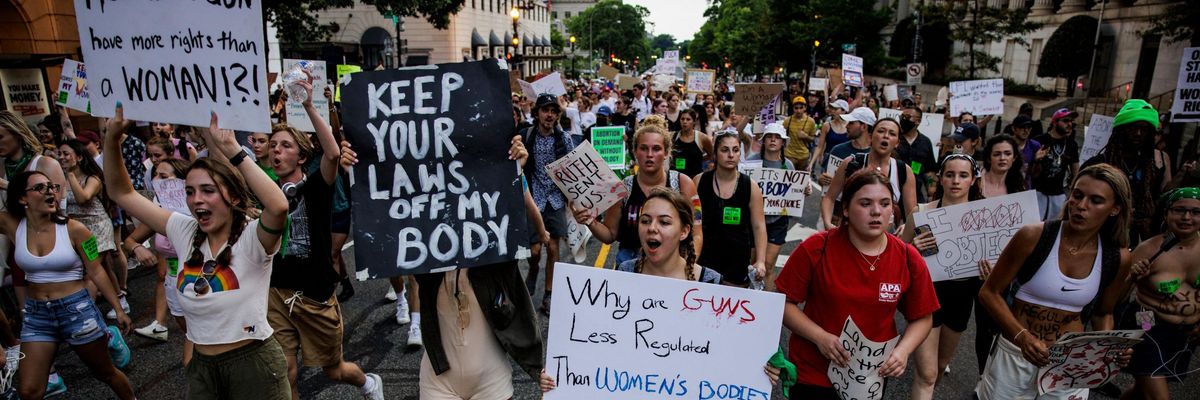The U.S. Supreme Court's decision to overrule Roe v. Wade and strip away abortion rights for millions of women has left the majority of Americans opposing the ruling and fearing what the high court will do next.
Fifty-six percent of respondents in an NPR/PBS NewsHour/Marist poll taken after Friday's ruling said they disagreed with the court's decision, including 45% who said they strongly disagreed with it.
"What the court did is clearly outside the mainstream of public opinion."
Nine out of 10 Democrats and more than half of independent voters said they oppose the ruling, while only 20% of Republicans opposed it.
"What the court did is clearly outside the mainstream of public opinion, and that is reflected again in the NPR poll," wrote Domenico Montanaro at NPR.
The poll of 941 people, which had a margin of error of +/-4.9 percentage points, found that only 39% of respondents were left feeling confident in the court after the Dobbs v. Jackson Women's Health Organization ruling--a new low for the survey. As Common Dreams reported last week, a separate poll by Gallup taken just before the ruling found that only 25% of Americans had confidence in the court.
A majority of respondents expressed concern over possible rulings that could be in the court's future as the right-wing majority appears ready to overturn more of Americans' fundamental rights.
Fifty-six percent of people said they were concerned that the court will now reconsider the rulings that affirmed gay Americans have the right to marriage equality, that people can obtain contraceptives, and that state laws banning same-sex relationships are unconstitutional.
Justice Samuel Alito wrote in the majority opinion in Dobbs that the ruling should not "cast doubt on precedents that do not concern abortion," a statement Justice Clarence Thomas agreed with before saying in his concurring opinion that the court should now reconsider those precedents.
Fifty-seven percent of respondents said the right-wing majority ruled against Roe as a matter of politics, not out of respect for the rule of law.
The poll found that 48% of Americans are more likely to vote for Democrats in congressional races in November, while 41% said they would favor Republicans. The survey asked the same question of voters in April, before the ruling and the hearings on the January 6, 2021 insurrection, and found that more respondents favored the GOP.
Just over half of respondents said they would back a candidate who would support a federal law codifying the right to abortion care.

